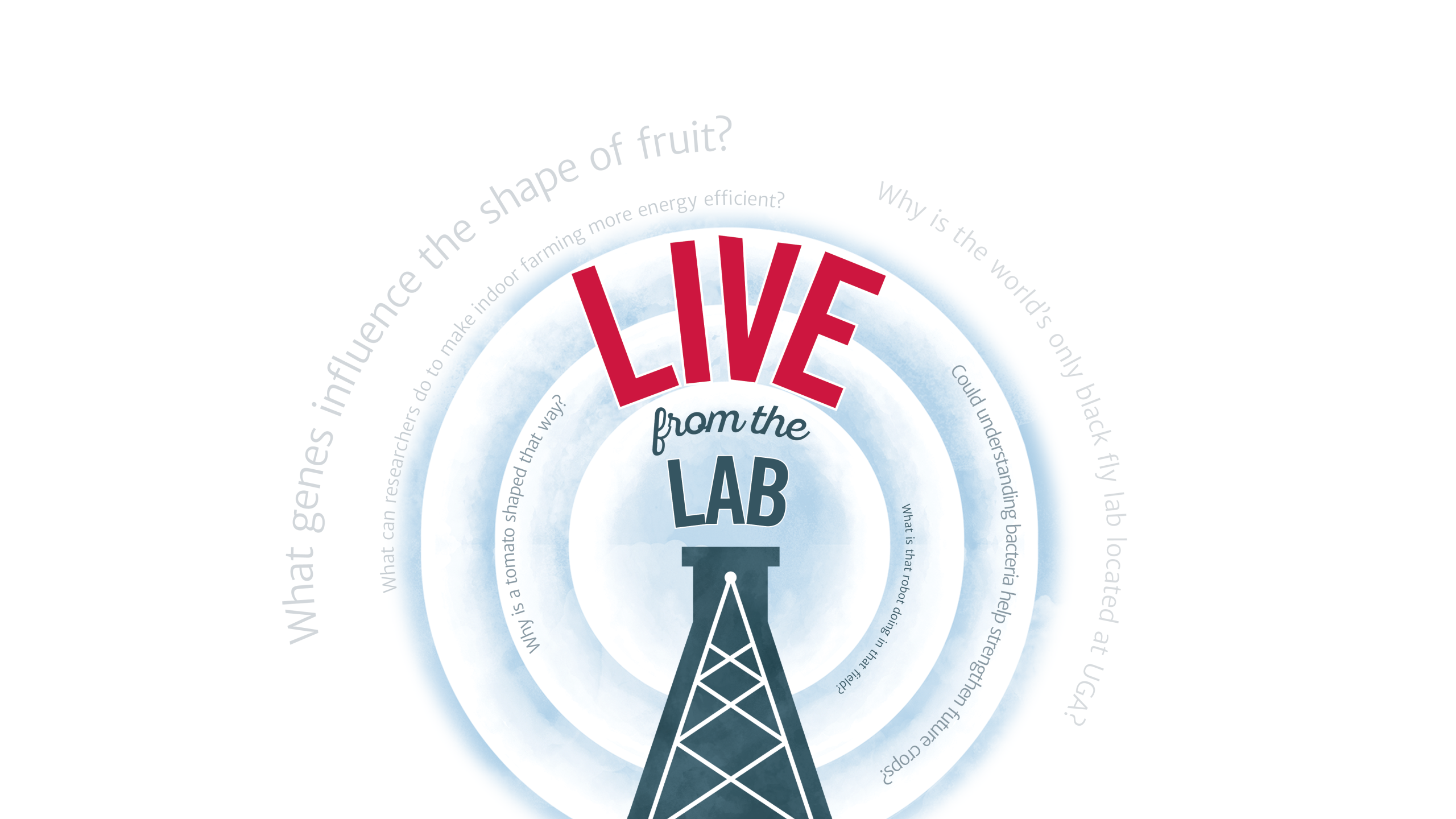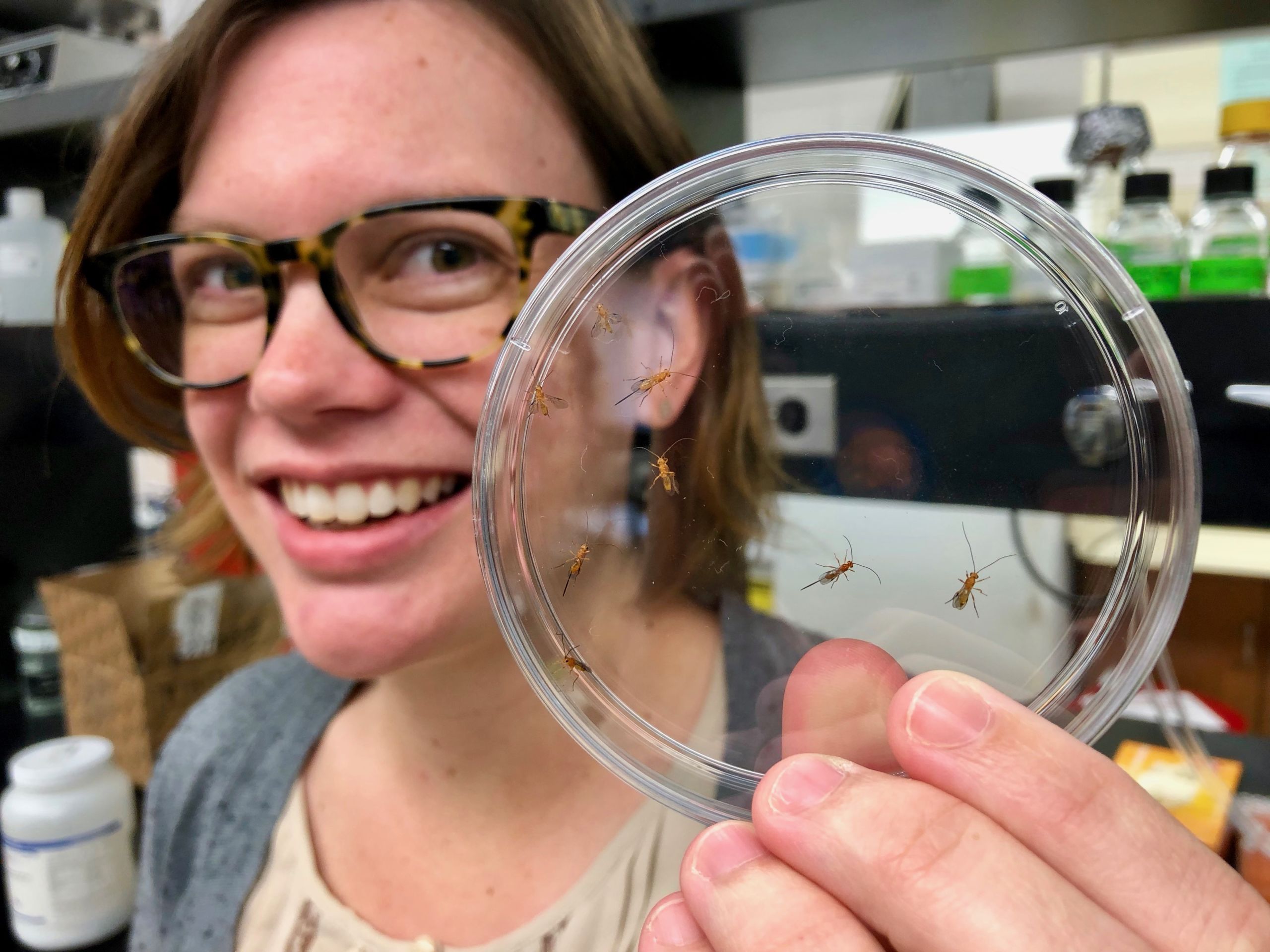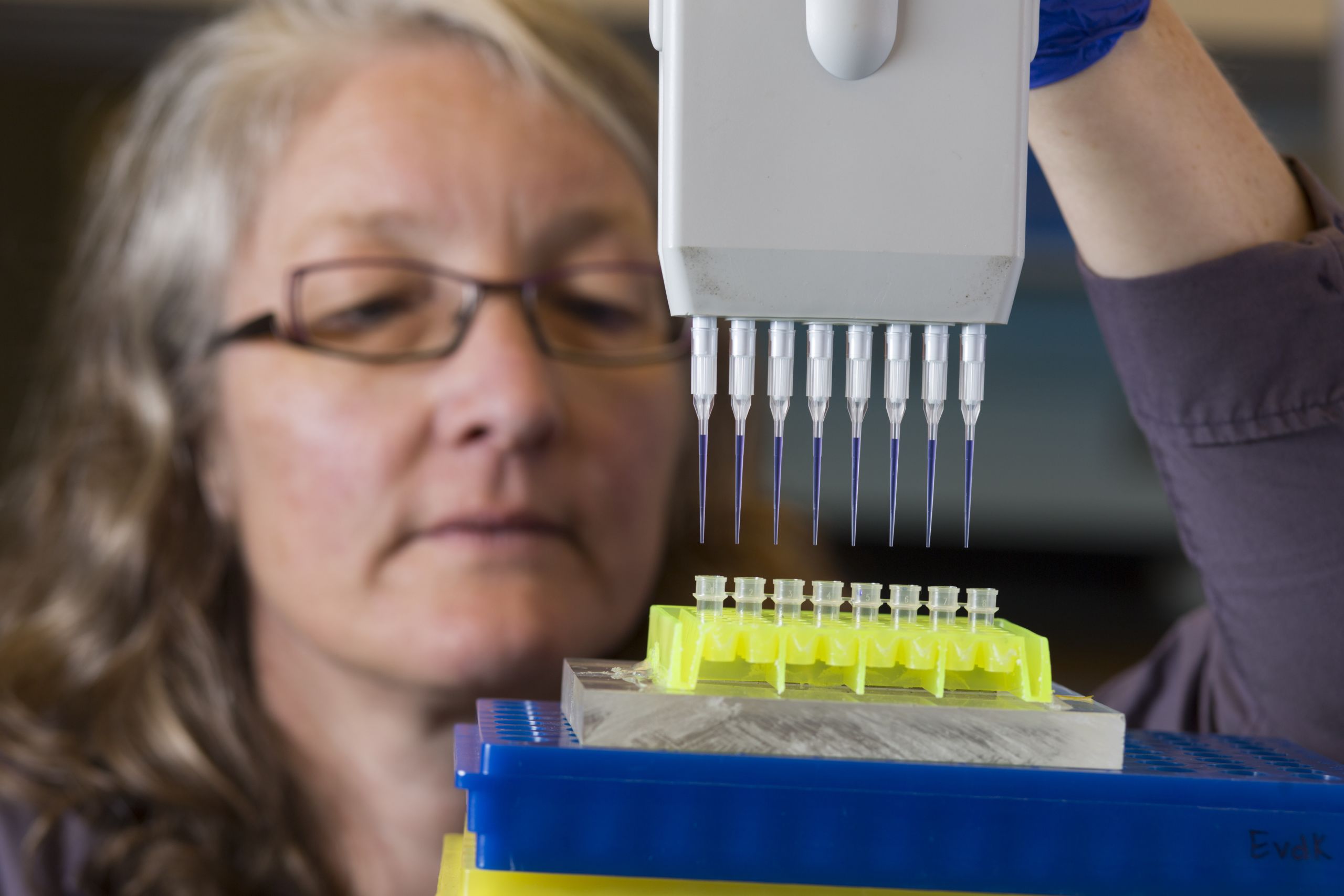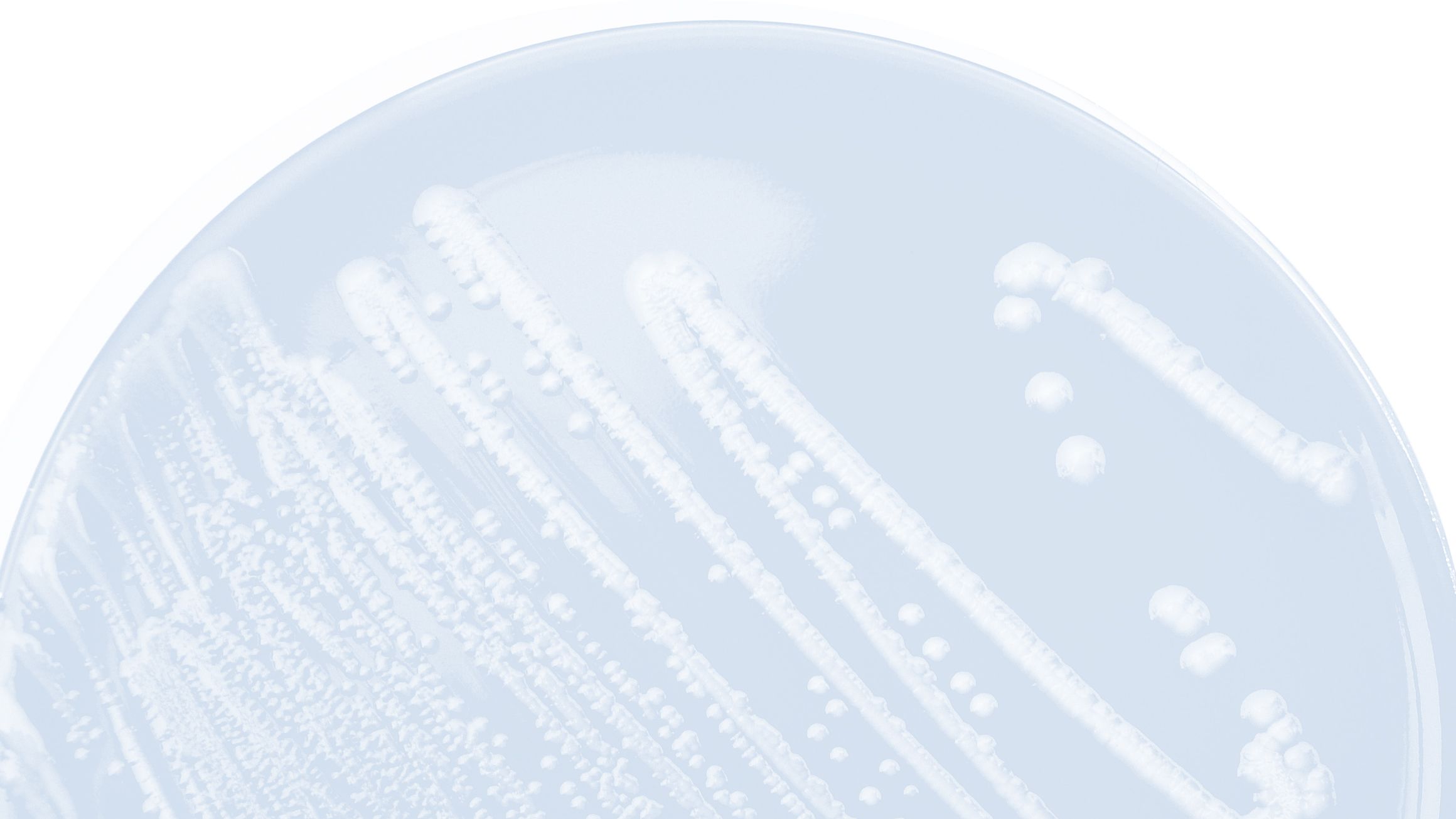Live
from
the
Lab

Grab your lab coat. We're opening up the labs of CAES scientists to provide a behind-the-scenes look at research that will shape the future of agriculture and the environment.
By Merritt Melancon

The work of the scientists at the University of Georgia’s College of Agricultural and Environmental Sciences can seem like dispatches from the future of agriculture.
In their labs, they use photon lasers to spy on the work of stem cells in bones. They examine zombifying viruses in wasps and imagine building an army to battle crop invaders like tomato hornworms. They tinker with robots that can phenotype crops in the field. These scientists constantly seek new questions to ask and to answer.
Every other month, the fascinating work of CAES researchers is featured on the college’s interactive Facebook series, “Live from the Lab.” In each 10-minute episode, science writer Merritt Melancon takes viewers behind the scenes for a conversation with a CAES researcher right in the lab, followed by viewer-submitted questions. Here, we take a closer look at some of the researchers featured in Live from the Lab.
Follow the UGA College of Agricultural and Environmental Sciences on Facebook for new and previous broadcasts of Live from the Lab.


Microphone to the Microbiome
From our hair to our toenails, every person on earth is made up of trillions of tiny cells. The remarkable part is realizing that not all of these cells are human. Estimates differ, but scientists believe that somewhere between one-tenth to one-half of the cells in the human body belong to our bodies’ microbiome — the tiny world of organisms that lives inside us. From our digestive tracts to our immune system, scientists are just starting to understand how human health is tied to this hidden kingdom. They’re not sure what all of our tiny colonizers do, but doctors and scientists know they’re vitally important to our health. And people aren’t alone in their critical reliance on the microbiome. From the simplest grass to insects to livestock, all organisms rely on the smaller organisms that live inside of them to maintain the delicate balance of health. Scientists at the UGA College of Agricultural and Environmental Sciences are pioneering the investigation of this tiny world and how it has shaped evolution and the environment.





